What is Coccidiosis in Chickens? Keep Chicken Diseases down on Homesteads
What is Coccidiosis?
It normally only kills young chickens between weeks 3 - 8, and the coccidia cause the bird to bleed internally from the intestinal walls. So a really nasty, and painful disease. And it is not just a disease affecting chickens, but can also affect puppies as well.
How do Chickens get Coccidiosis?
Coccidia are very prolific parasites. A single sporulated oocyst can have a big impact when eaten by a chicken. Each oocyst has four sporocysts in it, and each sporocyst has two sporozoites in it. The digestive tract releases the eight sporozoites from the oocyst, and they move into the cell lining of the digestive tract. Inside the cell, the parasite divides and invades more cells. There may be several generations of asexual multiplication; however, this stage is self-limiting and eventually stops. Finally, a sexual stage occurs in which male and female organisms unite and form new oocysts that are protected by a thick wall. These oocysts are shed in the faeces.
What are the Symptoms of Coccidiosis?
How to Limit Coccidiosis
The coccodia love wet
places,
especially when they can be found near warm places. So rainy weather is
always a worry, as is water areas that over-spill around heat lamps in
the hen house. Damp conditions around heat lamps are perfect breeding
grounds for the coccidia. Where you have this problem dig out the wet
litter and replace it with dry litter.
If you find that the litter is very
dirty, get rid of it and replace it with clean litter. This is
important when you remember that the coccidia are present in chicken
poop. It is also important to do so if you can smell ammonia in the
shed, as this is coming from the chicken poop, indicative of too much
poop and not enough litter and this will also cause respiratory
problems in your birds.
Finally, in raising healthy chickens it
is important that they receive a good balanced diet when you first get
them. You will
need a diet that will keep the gizzard healthy. Studies have shown that
those chickens who were fed a good commercial chick ration had
well-developed gizzards, which in turn reduced the numbers and the
effects of coccidiosis later on. Wheat is an important factor in this,
as is whey powder (which you can buy at health shops) and should be
added to the chick started feed once or twice a week.
I am also a firm
fan of cider vinegar in
the water which also aids the gut, and keeps
disease down.
Did you find this page helpful?
Sharing is a way of saying, "Thanks!"
Follow Us and Keep Up to Date
Other Chicken Resources you May be Interested in
Go
from Coccidiosis to Raising Chickens
Go to Chicken Breeds
Go
to Feeding Chickens
Go
to Raising Bantam Chickens
Go
to Cleaning Chicken Pens with Fire
Go
to Chicken Coop Plans
Go
to Chicken House Plans
Go
to Backyard Chickens
Go
to FAQ Raising Chickens
Go
to Butchering Chickens
Go
to Caponize Chickens
Go
to Natural Remedies for Sick Chickens
Go
to
Self-Sufficient Living
Go
to
Farm Animals
You can Add your Own Comments and Pages!
We have lots of pages where you can contribute to throughout this website. We love hearing from our readers, and hope you will be one of those we hear from too. Look around our homesteading website. If you have any comments or questions, please feel free to contact us.
Leave a Comment
Do you have anything that you would like to add after reading this page? We would love to hear your thoughts. If you can add additional information to what has been written here you will be adding value to the website! No need to have any special skills - just type and submit. We will do the rest!
Other Comments
Click below to see comments from other visitors to this page...
Help with Coccidiosis Epidemic 




I recently bought in some parent stock poultry which were found to have cocci. They were +16 weeks old and some lived and a half the stock died.
…
never lost a chick to Coccidiosis 




I have never lost a chicken to coccidiosis
The use of chemicals or medication is a last resort for me when treating my chickens.
I've never used …
Charcoal for treating Coccidiosis 




Thanks for your step to step handling of the Coccidiosis.
It is a stubborn disease that invaded my poultry farm and killed my birds. Drugs could not …
coccidiosis in chickens and CORID 




I treated my 7 week old chickens for coccidiosis three weeks ago with CORID.
Should I do a follow up treatment? I suspected one of my chicks had coccidiosis …



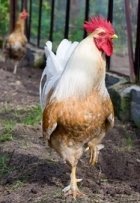
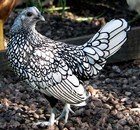
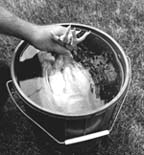
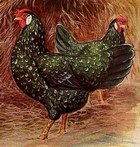
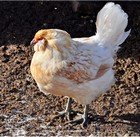
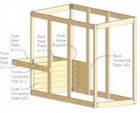
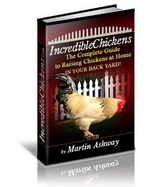
New! Comments
Do you have something of value to add? Leave me a comment in the box below.